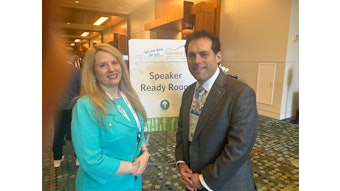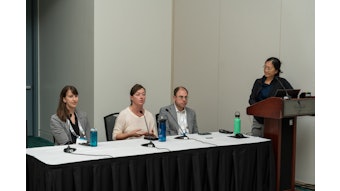Qualitative Research: Looking at the Literature Through a Different Lens
Explore themes such as what drives patient behavior and satisfaction, as well as patient and caregiver decision making.

Quantitative research methods are pervasive in otolaryngology. Still, qualitative research, which involves collecting and analyzing non-numerical data, such as text, photos, or video is trending. It allows otolaryngologists to explore themes not often explained in quantitative research, such as what drives patient behavior and satisfaction, as well as patient and caregiver decision making.
“We’re starting to see terms such as ‘focus groups,’ ‘semi-structured interviews,’ ‘phenomenological research,’ and ‘grounded theory’ in otolaryngology literature,” said Prasanth Pattisapu, MD, MPH, Assistant Professor in the Department of Otolaryngology at Ohio State University and pediatric otolaryngologist at Nationwide Children’s Hospital in Columbus, Ohio. “Quantitative research is meant to answer a specific question, but qualitative research can make us go back and ask: ‘Are we asking the right question to begin with?’”
In Monday’s session: “Qualitative Research for the Otolaryngologist: Why and How to Incorporate it into Your Research,” Dr. Pattisapu will be among a distinguished panel of clinician scientists who will discuss the importance of qualitative research to inform quantitative research or as a standalone research practice, with moderator Nikhila Raol, MD, MPH, Associate Professor in the Department of Otolaryngologist-Head and Neck Surgery at Emory University School of Medicine in Atlanta, Georgia.
Clinician scientist panelists will present proofs at different stages of qualitative research projects to illustrate how qualitative research methods can lead to new and diverse ways of thinking and insight into patient and caregiver challenges and concerns that can help you design interventions to improve quality of life for your patients and their caregivers.
“Qualitative research is often called ‘soft science’ because it doesn’t have hard numbers behind it,” Dr. Raol said. “But it can provide additional information that can serve as a bridge between the what and the why.” When you’re trying to make changes in your practice or with patient care, it’s important to consider non-quantitatively measurable aspects of patient care to improve outcomes, she said.
“Qualitative research can be paradigm shifting in its own right,” Dr. Raol said.
Expect to come away from the session with a greater understanding of the merits of qualitative research in otolaryngology and tools to interpret the literature to help advance your practice and the field.











